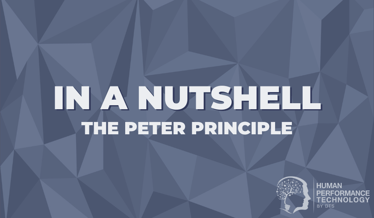If a Job Could Talk
If a job could talk, it would explain precisely what was necessary to achieve superior performance. We could ask it to tell us about the:
- Knowledge a person needs,
- Personal attributes required to drive success,
- Rewards for superior performance,
- Hard skills vital for the job,
- Behaviours necessary to perform at peak levels andIntrinsic motivators.
But we all know that jobs can't talk. If they did, we would certainly hear the real story.
The Problem
Instead, we must get the truth from another source - subject matter experts. These are the people in and around a given job. But even asking people about a job presents a challenge.
Before we can learn the true meaning of superior performance for any particular job, the experts must remove their natural biases. Bias is an unfair preference or dislike of something. Bias can create a blind spot - blocking out a single thing - or act like a set of blinders - making only one thing visible.
Unfortunately, biases get in the way of truly understanding job requirements. Over the years, we have learned that it is difficult - if not impossible- for subject matter experts to completely ignore their own bias. We also know that once subject matter experts do slice through their bias, they are able to hear the job talk. Once that happens, they can identify the key accountabilities or competencies for the job.
Only after they remove those natural biases can they deliver a true definition of superior performance for the given job.
The Solution
Removing bias can be the most formidable challenge in defining superior performance. In fact, we know that it is impossible to strip away the bias without an impartial facilitator. An expert can spur a group into unbiased, fair discussion and act as a catalyst for developing a clear understanding of what superior performance looks like. In short, an expert facilitator will help subject matter experts hear a job talking.
The Results
The process leads to an understanding of the knowledge, intrinsic motivators, personal attributes, behaviours and hard skills required of each key accountability for the job in question. After the process, businesses can compare all current and new staff members to the results and provide a developmental plan for each. Development plans that are job related are much better than those based on one person's opinion.
Original article reproduced with permission of the author Bill Bonnstetter, Target Training International.
Topics:
General Business
Theo Winter
Client Services Manager, Writer & Researcher. Theo is one of the youngest professionals in the world to earn an accreditation in TTI Success Insight's suite of psychometric assessments. For more than a decade, he worked with hundreds of HR, L&D and OD professionals and consultants to improve engagement, performance and emotional intelligence of leaders and their teams. He authored the book "40 Must-Know Business Models for People Leaders."



We Would Like to Hear From You (0 Comments)